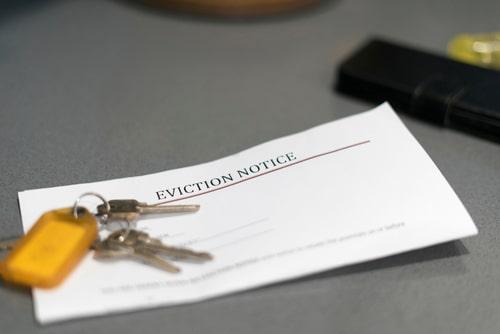What Rights do DuPage County Landlords Have During an Eviction?
 The pandemic changed countless aspects of our society, including the process of evicting a tenant from a rental property. Because so many people were unable to work during the pandemic, special protections, including eviction moratoriums, were put in place to prevent renters from being evicted from their homes.
The pandemic changed countless aspects of our society, including the process of evicting a tenant from a rental property. Because so many people were unable to work during the pandemic, special protections, including eviction moratoriums, were put in place to prevent renters from being evicted from their homes.
These measures were designed to prevent additional hardships for tenants already facing major challenges. However, landlords often found themselves in a difficult situation when it came to dealing with tenants who could not pay their rent. The moratorium on forcible entry and detainer actions has been lifted, but landlords still face substantial challenges in 2023.
The good news is that landlords have rights during an eviction process. If you are a landlord, you do not have to tolerate non-payment of rent, illegal use of property, and other lease violations. However, you do need to follow specific procedures when taking legal action or evicting a tenant.
Eviction Process for Residential Landlords
Most landlords seek to avoid evictions whenever possible. Unfortunately, sometimes, there is no other option than to evict a tenant. One of the most common reasons that a landlord must evict a tenant is for failure to pay rent. If your tenant is significantly behind on rent, you must provide the proper notification before initiating an eviction. A five-day notice to quit is a written notification that informs a tenant of his or her unpaid rent obligation and requires him or her to pay the past due amount in full. The landlord may serve the notice directly to the tenant, through the Sheriff's Office or a private process server, or through certified mail. You cannot simply slip the notice under the tenant's door or put it in their mailbox.
If the tenant has not paid after the five-day period, the landlord has the right to terminate the lease and file an eviction lawsuit with the county court. A hearing will be held during which the landlord and the tenant may present arguments to the court. If the court rules in favor of the landlord, an Order of Possession will be issued. This order includes a deadline by which the tenant must vacate the property.
Numerous complications can arise during the eviction process that will delay or even prevent the eviction from taking place. For example, if a tenant is not given proper notice of the past-due rent, an eviction lawsuit may be dismissed by the court.
Contact our Wheaton Residential Real Estate Lawyers
If you are a landlord and you need to take legal action against a tenant due to unpaid rent, lease violations, illegal use of property, or other issues, contact Stock, Carlson & Asso. LLC. Our DuPage County landlord attorneys understand the complexities of residential real estate law and evictions. We can guide you through the process and protect your rights as a landlord. Call us today at 630-665-2500 for a consultation.
Source:
https://www.illinois.gov/government/executive-orders/executive-order.executive-order-number-23.2021.html

 630-665-2500
630-665-2500







